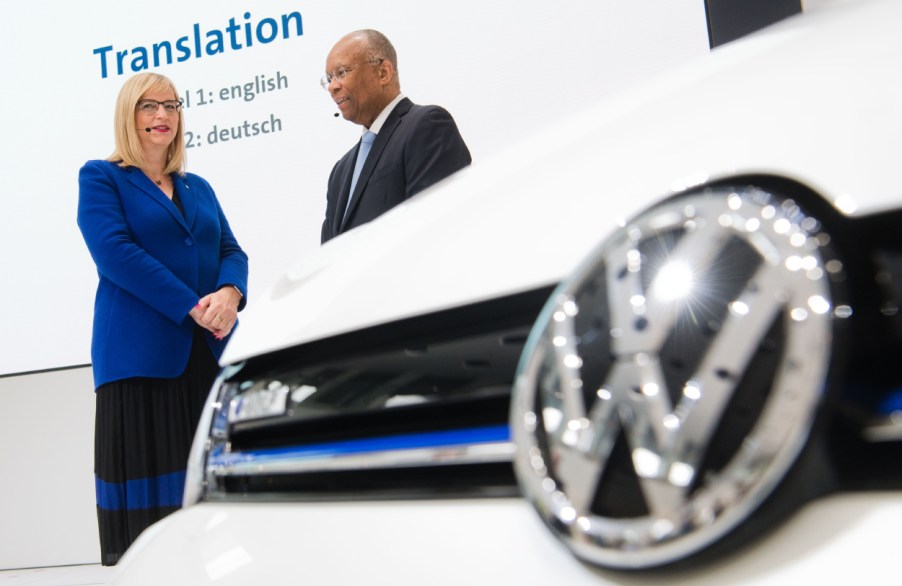
VW Presents New Business Strategy Since The Last Few Were Duds
Not again? Volkswagen keeps spinning its wheels every couple of years with another new business strategy. Here’s the latest one laid out this week by Ralf Brandstatter, VW passenger car head. The new strategy is called “Accelerate.” It is a mix of its current vehicles but with a ton of ID-branded EVs. Then, just like that, by 2030 70% of its products will be all-electric. But some new Volkswagen products are being pushed back.
ID. Buzz is right on track to “reach production by 2022.”
Of course the ID. Buzz minibus, which MotorBiscuit has said will never be available, is right on track to “reach production by 2022.” That means if it doesn’t get set back again it will go on sale in 2023. In that case, it has taken VW only seven years to develop this one model that it shares a platform with other products. Seven years is almost like an eternity in the car biz. What is taking so long is a mystery, which leads us to speculate VW won’t ever produce it. We hope we’re wrong.

Another model being pushed back is VW’s entry-level EV. It was expected to be out in 2022. Now VW is saying 2025 will be the soonest it will become available. Expected to be called ID.1, it slots in under the underwhelming ID.3 and ID.4. While no reason was given, we’ve heard rumors internally there have been problems with the “battery chemistry.” There has also been reported VW is having a hard time with profit margins associated with an under $24,000 vehicle.
Why does it take five to seven years to develop offshoots of existing platforms?
The ID.1 is supposed to be based on a version of VW’s MEB EV platform called MEB Entry. As with the ID. Buzz, this is the same EV platform that already underpins the ID.3 and ID.4. So we wonder why it takes five to seven years to develop offshoots of an existing platform? That is the whole point of a shared platform-to bonk different bodies onto the same platform to speed up development time. We’re as confused as VW seems to be.
Brandstatter says that the past year has been a “successful breakthrough for e-mobility” for VW. Besides the ID. Buzz and ID.1 VW plans on producing a flagship EV of sorts called “Trinity.” This plan calls for the Trinity to be available in only a few trims. Hardware features can be activated and deactivated by owners through over-the-air changes. No explanation of what hardware features are expected to be turned on and off are involved. We would expect safety features and things like Android Auto and Apple CarPlay are involved.

VW’s strategy is to develop a “neural network” where data is pooled
Volkswagen is also pursuing autonomy. It wants to develop a “neural network” where data is pooled. Then, what is gleaned can be spread out over all vehicles in the network to aid autonomous systems. Volkswagen expected that with 500,000 ID.3 and ID.4 cars plying the highways in the next two years it can begin to process the neural network through them.

As per usual, this isn’t expected to happen until at least 2026. Both ICE and EV Volkswagens will contribute to this network. “They will communicate and exchange data on traffic and obstacles,” Brandstatter said. “It will be a self-learning system of millions of cars.” So the next-generation Golf, Tiguan, Passat, and T-Roc will all be contributing to this network.
The current Touran will likely see another generation, while the Arteon looks to be on the way out. With VW the umbrella group for Audi, Porsche, and Skoda, it is looking at producing a whole heck of a lot of models once it adds all of its EVs to the mix. Whether this is sustainable remains to be seen, but if you’re VW you can always push off model debuts to fit your circumstances.



